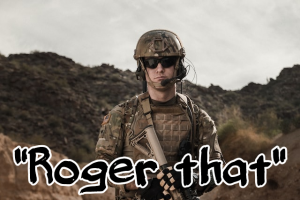A few days ago I was giving private lessons aboard someone’s brand-new sailboat. Their insurance company required more training for both owners before they would allow them to take it out without a licensed captain. One of the owners, John was there with his girlfriend Susan, and she said to him, “Why don’t you tell Captain Jeff about our love language?”. Of course, my immediate thought was “is this going to be TMI?” (Too Much Information)
 Photo by Jonathan Borba
Photo by Jonathan Borba
The Problem:
So he started off by telling me that they have been together for about 10 years and they have been sailing together from the beginning. For many years, she would mention potential collisions with something like, “There’s a sailboat off the starboard bow at 1 o’clock” and he would often snap at her with some retort like “I KNOW” or “DO YOU THINK I’M BLIND?”.
This went on for awhile, and not surprisingly, one day he almost collided with another vessel and he snapped at her again “DID YOU SEE THAT BOAT COMING?”. She replied calmly, “yes, I saw it”, and he yelled “WELL THEN, WHY DIDN’T YOU WARN ME ABOUT IT?” and she calmly said, “you’re not blind”. IT was at that moment he realized how his demeanor was not only a poor way to stay safe on his vessel, but it was not helping his relationship either, so he came up with a new plan.
 Photo by Andrea Piacquadio
Photo by Andrea Piacquadio
The First Part of the Solution:
Whenever she would point out a buoy, boat or other obstacle he might want to notice, his response would be “Roger that”. If you don’t know, “copy” or “copy that” is a term used in business and military settings to indicate that the speaker has heard and understood the previous statement. “Roger” or “Roger that” is also a term used in business and military settings, but it is supposed to indicate that the speaker agrees with the previous statement.
The semantics aren’t important, what is important is that since implementing their new communication protocol, not only are they safer, but sailing has returned to the wonderful experience it always had been, and they say their relationship is stronger than ever, because it is not strained when they are relaxing while sailing. After realizing how it changed the dynamic of their relationship while sailing, they dubbed it their “love language of sailing”.

The Second Part of the Solution:
Then they decided to take their “love language” one step further. They bought walkie-talkie headsets to use when they are too far to speak to each other without yelling. Let’s say they are trying to dock; she is on the bow and he is at the helm; the only way to communicate without the headsets is to yell. They decided that there is no nice way to yell. Even if you are trying to be helpful, but the other person is so far away they can’t hear your normal volume, the yelling could be misconstrued, so now they talk calmly into their headsets, at a normal voice, and their relationship is not strained during that process.
 Image by AllClear55
Image by AllClear55
If you have read my statement on the home page with the heading “You’ve heard the term ‘salty’ as it refers to someone’s demeanor, right?” then you know that their old way of being is something I experience all too often with skippers and I have never liked it. When I am at the helm of a boat, I share with everyone on board, “unlike many skippers, I will never get upset if you point out an obstacle of any sort that you think there is any chance I have not seen. I would rather have you tell me about something I already saw, than have you assume I didn’t see it”, and I have always replied with two words as well, “thank you”.
The Truth
Accidents happen on the water for all kinds of reasons, and too often, it boils down to the skipper did not see the obstacle early enough to avoid it. If you’re the salty skipper that yells at people who are trying to keep you and your vessel out of harm’s way, I suggest you adopt the “love language of sailing”.
Roger that?
Fair Winds
Captain Jeff Vegas
 Terms of Use
Terms of Use
Leave a Reply